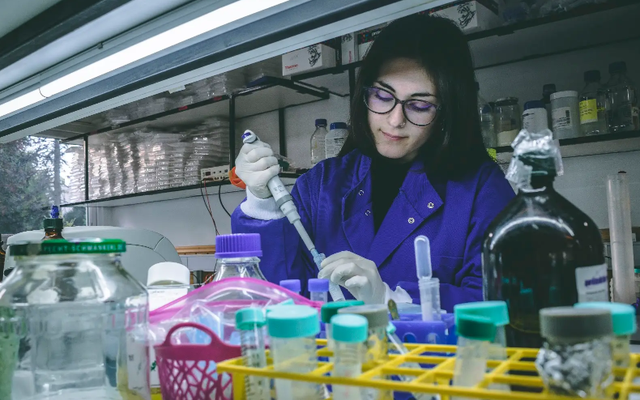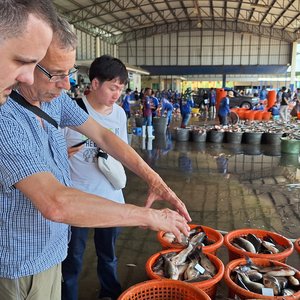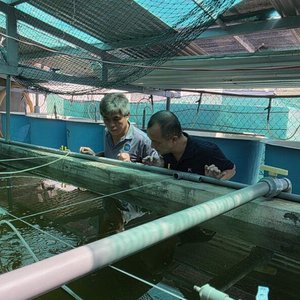Chilean researchers from the "Animal Health in the Marine Environment" program of the Interdisciplinary Center for Aquaculture Research (INCAR) were awarded with the fund from the FONDECYT Exploration 2025 for the project "Development of PROTAC technology as a novel antiviral strategy against the infectious pancreatic necrosis virus in salmonids," an initiative that seeks to break new ground in combating viral diseases in fish through the use of cutting-edge technologies.
The four-year project will be led by Dr. Jaime Figueroa Valverde, Principal researcher at the INCAR Center, and will include the collaboration of Dr. Guillermo Valenzuela Nieto, Professor at the Universidad San Sebastián and former INCAR postdoc, and Dr. Denise Haussmann, Professor at the Universidad Santo Tomás, Valdivia.
The main objective of the project is the development of a prototype of PROTAC (Proteolysis-targeting chimeras) technology, a molecular tool that enables the targeted degradation of specific proteins. In this case, the goal is to target the VP2 protein of the infectious pancreatic necrosis virus (IPN), one of the most persistent and significant viral diseases in salmonids.
PROTAC Technology: An unprecedented antiviral strategy in fish
This technology represents an unprecedented scientific challenge in aquaculture, as there are no previous reports of its application to viruses relevant to fish, and even fewer in the Chilean context. The project seeks to demonstrate that a PROTAC system, extensively characterized in mammalian models, can be effectively adapted for use in fish cells, opening up new possibilities for disease control in the salmon industry.
"PROTAC systems have been extensively developed with various antiviral molecules. Thus, PROTACs harness the cellular machinery to eliminate unwanted proteins in a highly selective way within the infected cell. This option has been particularly useful in the development of treatments for diseases such as cancer and neurodegenerative disorders. The number of PROTAC-based clinical trials for these types of diseases has grown rapidly in recent years," explained Dr. Figueroa.
According to the academics, PROTACs offer an innovative avenue for treating viral diseases in fish, such as infectious pancreatic necrosis virus (IPNV), which severely affects commercial aquatic species. “PROTACs, by directly targeting key viral proteins, such as the VP2 protein in IPNV, could offer a more specific and effective alternative to conventional therapies,” mentioned Dr. Figueroa.
"If we can advance this PROTAC technology for the IPN virus, it opens the door to treatment against other viruses relevant to salmon farming. Traditionally, the aquaculture industry, like other animal production systems, has different options when faced with pathogens such as bacteria or viruses. For example, genetic improvement of farmed species has a goal of obtaining animals resistant to one infection or another, but so far, there is no genetic improvement resistant to the full spectrum of pathogens, such as aquatic pathogens. Vaccines are also used as a first line of protection; however, in the case of bacterial infections, there is a second line of defence provided by antimicrobials of various types. However, in the case of viruses, if vaccines fail or are ineffective, there is no second line of defence and fight against viruses, except for preventive prophylactic measures of cleaning and traditional disinfectants. Therefore, these PROTAC systems emerge as an innovative and yet unexplored alternative in aquaculture systems," highlighted Dr. Figueroa.
The research will be conducted jointly by the fish molecular biology laboratory of Universidad Austral de Chile (UACh) and the Biotechnology Exploration Laboratory of Universidad San Sebastián (USS).
“Given the disruptive nature of the proposed technology, it will be essential at this stage of development to conduct a thorough patentability analysis to explore the possibility of securing intellectual property protection for the developed technology,” the researchers explain.













